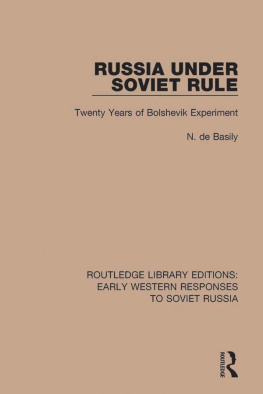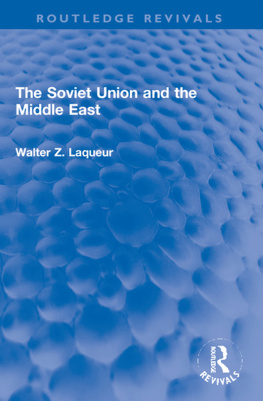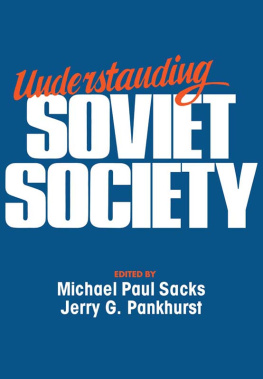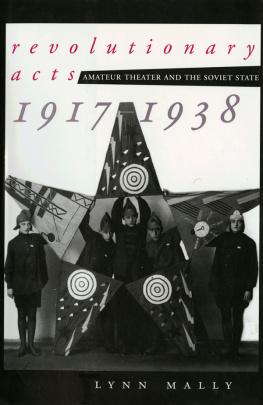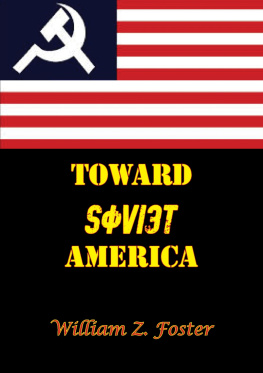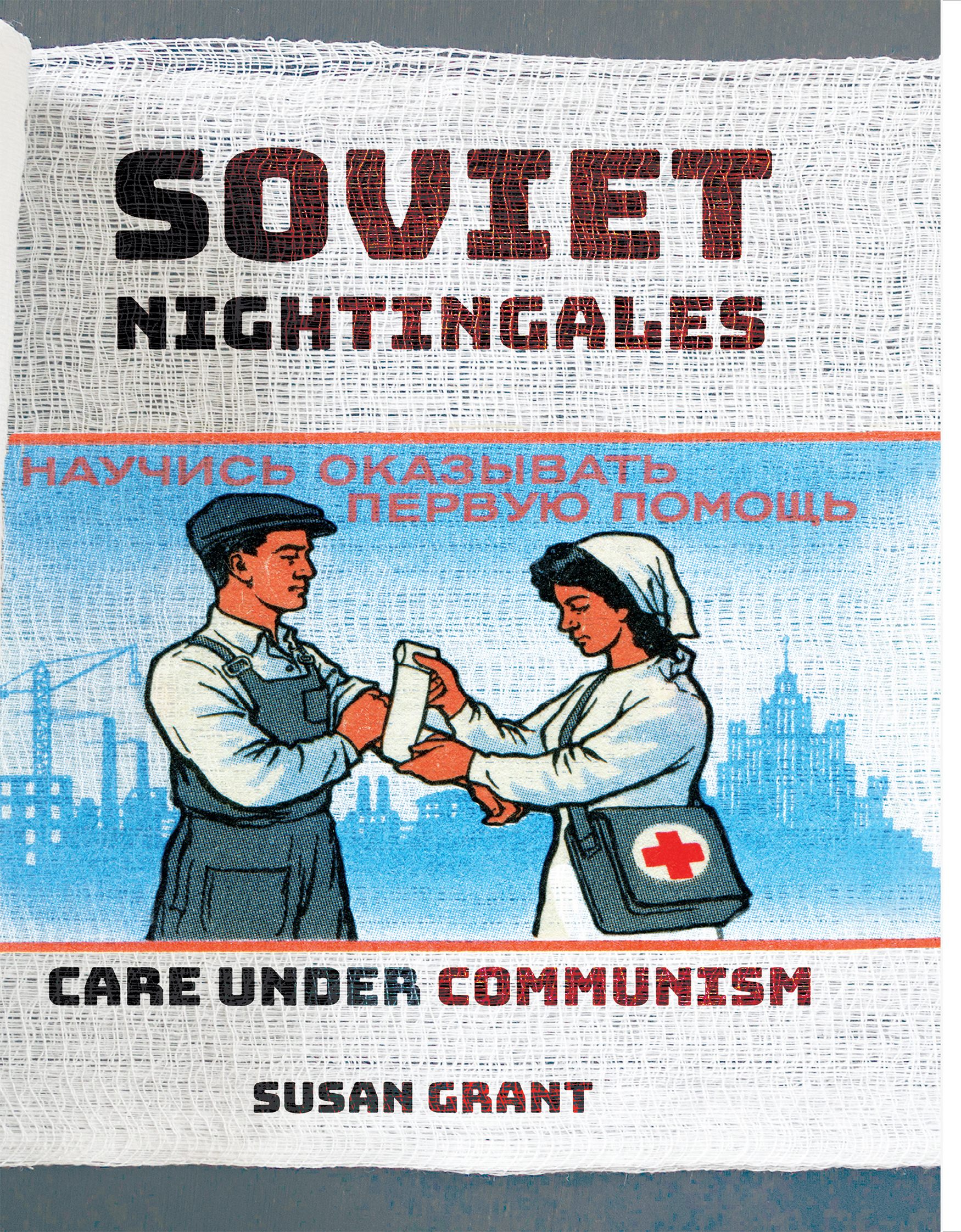Contents
Guide
Pagebreaks of the print version
SOVIET NIGHTINGALES
CARE UNDER COMMUNISM
SUSAN GRANT
CORNELL UNIVERSITY PRESS
Ithaca and London
To Shane,
and in memory of my grandmother, Margaret Grant
CONTENTS
ACKNOWLEDGMENTS
This book has been ten years in the making, and I am grateful to many organizations and people. Soviet Nightingales would not have been possible without the generous funding provided by the Irish Research Council / Marie Curie CARA Postdoctoral Mobility Fellowship; the Alice Fisher Society Fellowship Award from the Barbara Bates Center for the Study of the History of Nursing, University of Pennsylvania; University College Dublin (UCD) Seed Funding; a Wellcome Trust Small Grant for a workshop at UCD in 2014; and Liverpool John Moores University (LJMU) Quality Related (QR) research funding.
I could not have asked for two more inspirational and generous mentors in Judith Devlin at University College Dublin and Susan Gross Solomon at the University of Toronto. Their influence has been immense and is written all over this book. The University of Toronto was a stimulating and friendly home, and I thank Seth Bernstein, Mayhill Fowler, Zbigniew Wojnowski, Jennifer Polk, Alison Smith, Peter Solomon, Sioban Nelson, Tracy McDonald, Jana Oldman, Angela Byrne, Lynne Viola, Janet Hyer, and colleagues at the Munk School of Global Affairs for making my time there so enjoyable and productive. At the Barbara Bates Center for the Study of the History of Nursing, University of Pennsylvania, I am particularly grateful for the guidance of Julie Fairman. While in Philadelphia, I also had the immense pleasure of working in the American Friends Service Committee (AFSC) archives and benefited from the help of the wonderful Don Davis.
I am indebted to a number of archive and library staff whose help, guidance, and good humor made working away from home a pleasure. I learned much from my visits to several medical museums, including the Museum for the History of the Sisters of Mercy Communities in Moscow. In St. Petersburg, the Russian Nurses Association, and in particular Valentina Sarkisova and Natalia Serebrennikova, welcomed and helped me in spite of their busy schedules. Yanina Karpenkina provided research assistance. Katherine Stephan, Cath Dishman, and Maria Follett from the LJMU library helped make this book Open Access. Participating in conferences and workshops has been crucial to shaping this research. I am grateful to colleagues for invitations to present papers about nursing and some of the themes in Soviet Nightingales.
A number of colleagues and friends have made a mark on this book through various conversations, and some generously read and commented on chapter drafts, as well as pointing me in the direction of research material and sharing sources (and some have done all of this!). In no particular order they include Seth Bernstein, Benjamin Zajicek, Donald Filtzer, Susan Gross Solomon, Johanna Conterio, James Ryan, Dan Healey, Christopher Burton, Melanie Ilic, Elena Kozlovtseva, William A. Glaser, Botakoz Kassymbekova, Mikhail Poddubnyi, Jonathan Waterlow, Sioban Nelson, Elena Zdravomyslova, Gleb Albert, Tony Heywood, Alissa Klots, Chris Read, Frances Bernstein, Claire Shaw, Anne Marie Rafferty, Maria Kunkite, James Crossland, Tom Beaumont, Anna Hajkova, Judith Devlin, Laura Kelly, Mark Jones, Isaac McKean Scarborough, Jaime Lapeyre, and William Glaser. There are so many people whom I met along the way that I might not mention here but to whom I am grateful. Any errors or omissions are naturally my responsibility.
LJMU provided a stimulating and convivial environment in which to finish this book, and I thank my colleagues there, especially Joe Yates, Alex Miles, David Clampin, Tom Beaumont, Gillian OBrien, Nick White, Olivia Saunders, James Crossland, Lucinda Matthews-Jones, Andrea Livesley, Chris Vaughan, Lucy Dunlop, Matthew Hill, Alison Francis, Janice Johnston and Steve Lawlor. My thanks to friends and colleagues in Dublin, including Niamh Wycherley, Laura Kelly, Maria Falina, Suzanne Darcy, Catherine Cox, and Mercedes Penalba-Sotorrio. Special thanks to James Ryan, Angela Byrne, and Seth Bernstein for making international work so enjoyable.
In Moscow Olga Kleshaeva pulled me away from work to enjoy walks, Sunday afternoon cycles, and pleasant cultural outings around the city. Svetlana Maximenko, who put a roof over my head during my first trip to Moscow in 2005, continues to look out for me. Svets late mother, Olga Nikolaevna; her daughter, Lera; son Kolya, and partner, Vasily, became my Russian family.
At Cornell University Press I had the great pleasure of working with Roger Haydon before his retirement and later Emily Andrews, Bethany Wasik and Allegra Martschenko. I am also grateful to Cornells production team and especially Susan Specter. I also thank Kristen Bettcher for overseeing the copyediting process and Susan Certo for indexing. Cornells peer reviewers provided me with constructive and insightful feedback that greatly enhanced the manuscript. I am also very grateful to the production team at Cornell.
My grandmother, Margaret Grant (19182008), trained as a nurse in London in the late 1930s, and my childhood bedtime stories were replete with stories about nursing. She always wanted me to follow her career choice, and even though I chose a different path, she evidently exerted an influence. I thank Thomas, Nora, Richard, and Aoife Grant; Carmel Fraher; and the late Richard Fraher for their love and support. And to Shanethank you.
Some ideas and material that appear in the book were published elsewhere, and I acknowledge these in the appropriate chapters. Separately, I note the following: Susan Grant, Creating Cadres of Soviet Nurses, 19361941, in Russian and Soviet Health Care from an International Perspective: Comparing Professions, Practice and Gender, 18801960, edited by Susan Grant (London: Palgrave Macmillan, 2017), 5775, reproduced with permission of Palgrave Macmillan; Susan Grant, Nurses in the Soviet Union: Explorations of Gender in State and Society, in The Palgrave Handbook of Women and Gender in Twentieth-Century Russia and the Soviet Union, edited by Melanie Ilic (London: Palgrave Macmillan, 2018), 249265, reproduced with permission of Palgrave Macmillan.
ABBREVIATIONS AND GLOSSARY
AFSC | American Friends Service Committee | |
|---|
akusherka | midwife |
BGSO | Be Prepared for Sanitary Defense |
Cheka | All-Russian Extraordinary Commission for Combating Counterrevolution and Sabotage |
Commissariat | Ministry or Department |
delo (d.) | Folder in an opis |
Donprofobr | Don Department of Professional Education |
Donzdravotdel | Don Health Department |
Gubzdravotdel | Provincial Health Department |
feldsher (m) / feldsheritsa (f) | medical worker less qualified than a doctor and usually stationed in rural areas |
fond (f.) | archive holding/collection |
GAGS | State Archive of Sochi |
GARF | State Archive of the Russian Federation |
GATO | State Archive of Tambov Oblast |



